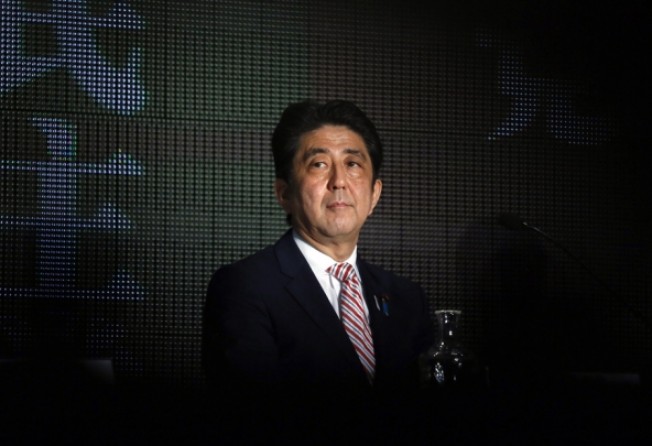War with Japan marked China and remade the world
Kevin Rafferty says Japanese politicians must learn the lessons of history

Someone who wishes Shinzo Abe, Japan and Asia well should buy the Japanese prime minister a copy of Rana Mitter's new book, China's war with Japan, 1937-1945: The struggle for survival.
Let Abe read and understand the dreadful damage Imperial Japan did to China before he tries to cash in on what promises to be a sweeping upper house election victory in three weeks. With such a victory, Abe would have a majority in both houses of parliament and be able to change Japan's constitution and fulfil his promises of restoring the country's "greatness".
Abe's promise that "Japan is back" is misplaced in the modern world where we are all dependent on one another. It is especially dangerous when Abe in effect tries to wave red flags in front of a resurging China.
The same well-wisher could also supply copies to China's leaders so they, too, can understand the roles of Japan, Chiang Kai-shek and his Kuomintang, and indeed the Americans and other Western allies, in shaping China and the modern world.
For Mitter, a professor of the history and politics of modern China at Oxford University, the second world war began not in 1939 but in 1937 with the Marco Polo Bridge incident, when Japan thrust aside all pretence and went to war with China.
According to this account, modern China was not the creation of Britain and the opium wars of the 19th century, but was forged on the bloody anvil of battle against Japan.
Mitter generally handles the swirling cast of characters superbly, introducing key players like Wang Jingwei, long forgotten by Western historians who have dominated the debate on the war and thus underplayed Asia's tragic role.
Mitter sets a gloomy stage: "If we wish to understand the role of China in today's global society, we would do well to remind ourselves of the tragic, titanic struggle which that country waged in the 1930s and 1940s not just for its own national dignity and survival, but for the victory of all the Allies, west and east, against some of the darkest forces that history has ever produced." Digest that, Mr Abe, before you spit in the face of history.
Someone might reflect on how - even today - the fate of hundreds of millions of people hangs on a few fatally flawed individuals and how they interact and clash with one another. Mitter points out it was Chiang who fought for China and refused to give in to the Japanese, and sacrificed millions of Chinese lives in the process.
Chiang stood for China as one of the five victorious war powers and secured its place as a permanent member of the UN Security Council. The price was up to 20 million Chinese dead, 100 million refugees in their own country, and the swift downfall of the corrupt Kuomintang when the rejuvenated Communist forces were freed of the Japanese intruders.
The real question, of course, is what politicians and the people have learned from history. Abe still has much to learn. Is he still trying to vindicate his grandfather, Nobusuke Kishi? He should be asked whether the peace and security of billions of people in the Asia-Pacific region should be put second to his respect for his grandfather. For Beijing, there is the question of accepting the uncomfortable truths of history and learning from them.
China and Japan are cultural cousins who should continue to learn from each other. This is especially so for Japan when Abenomics is faltering.
The nationalist path espoused by Abe can only lead to disaster, not least because it will result in increased military spending that ageing, debt-ridden Japan cannot afford, if not to confrontation or worse. The problem is that politicians don't understand how our fates are bound together. Mitter can teach the lessons of history; learning them may avert disaster.
Kevin Rafferty is a professor at the Institute for Academic Initiatives, Osaka University